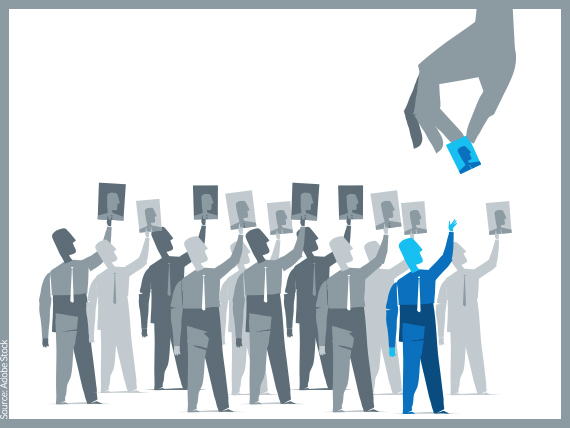Customers do business with brands.
The bigger and stronger the brand, the greater the appeal to do business with them. There's a certain peace that comes from doing business with a globally-recognized company, after all, you know that they will stand behind their brand promise and deliver the expected result time and time again.
As the old saying goes, nobody ever got fired for buying IBM. Ordering equipment from IBM was (and still is by most standards) considered to be one of the safest decisions a company could make when setting up their office environment. The equipment comes from a trusted brand able to stand behind the promises they've made to their customers.
Likewise, most people feel safer buying a car from an established dealership than going directly to the owner of a car who may have no brand to speak of, let alone guarantees. The good news is is that when you work with a brand, there's a whole team of people engaged in the process of getting you what you want, complete with guarantees. Their goal is to help you achieve your goal.
Upholding the brand promise is part of a healthy company culture. You may even find that one of the reasons why you love working with a company so much is because their employees live out the brand's mission, vision, and values.
As a group of people working toward a common goal, each employee must align with how the brand behaves in order to deliver on the brand promise.
That said, as wonderful as any individual employee may be, you would probably do business with a brand regardless of who is serving you.
Why would that be?
Because the brand essence shines through the excellence of their work.
While this is certainly true of staff, what about freelance or contract workers? How does this change? Truth be told, the same wonderful experiences can still happen so long as the brand promise is being upheld by those engaged in delivering the product or service.
Let's take Uber for example. When someone uses the Uber app to book a ride to where they want to go, they are hiring Uber to complete a service for them. The sole responsibility of the Uber driver that picks them up is to deliver the customer safely to their destination. Uber drivers are, by contract, unable to accept tips from patrons. The entire process for Uber customers is virtually seamless thanks to the drivers living out Uber's brand promise.
Likewise, Airbnb offers travellers looking for a homey place to stay thus by-passing the entire hotel industry. My husband is an Airbnb customer who has had only positive experiences, a reality made possible by Brian Chesky, Nathan Blecharczyk, and Joe Gebbia, the entrepreneurs who founded Airbnb. In short, he fully recognizes that he's engaged with the brand, not the homeowners who have opened their doors.
In freelance marketplaces, such as with my company, Voices.com, clients (the buyers of services) choose to work through the platform for a variety of reasons. Since founding the company more than a decade ago, those reasons remain largely the same. Anyone who works for a marketplace can easily identify with the following on why customers choose to work with freelancers through a neutral party.
Trust
First and foremost, trust. The responsibility of the marketplace is to act as the trusted intermediary between two parties (the buyer and the seller). By not representing the interests of either party, but rather caring about both equally, a marketplace can ensure that deals get completed on time and at the price as determined through the marketplace.
Ease-of-Use
Second, ease-of-use is critical to not only winning the client over the first time, but also to earning their repeat business. If the process was difficult, plagued with miscommunications and otherwise a hassle, they'd suffer through their first and only encounter, or worse, abandon the process never to return.
Speed
Third, speed is a defining factor in doing business online, particularly when outsourcing a technical skill or creative service to an online marketplace. Just think for a moment - where else could you tap into a global venue, put in a request for who you're looking for, and in return, receive dozens, if not hundreds, of qualified candidates? Because of the size of many of these sites, their global diversity and engaged community seemingly bends to the needs of the client, thus allowing them to meet somewhat impossible deadlines.
The common thread running throughout is this: The company itself, the brand if you will, is offering the promise consumers are banking on. Trust, ease and speed are only possible because those entrepreneurs have invested in building a platform and hiring people to make it all happen.
So the next time you visit the grocery store, hail a cab, or hire a freelance professional via an online marketplace, think about the brand you've chosen to work with and rest assured in the promise they've made.

